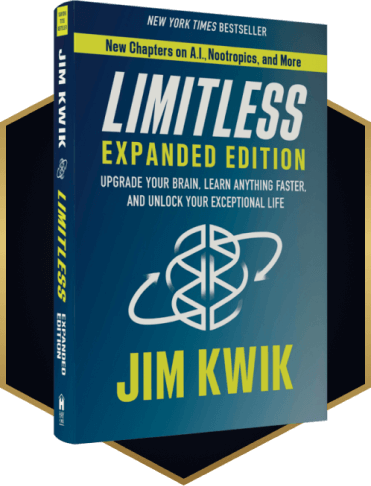Steven Bartlett believes that “self-awareness is realizing that there is no opponent – you’re fighting against yourself.” Yet, even with that belief, Steven admits that after talking to Jim on a recent episode of The Diary of a CEO podcast, he realized he still had limiting beliefs he was holding onto.
If you’re familiar with Steven or his podcast, that might be a surprise. After all, The Diary of a CEO is Europe’s most downloaded podcast. Success is not something that Steven appears to struggle with. He’s the co-founder of multiple companies, runs a successful podcast, and is the author of several books. And yet, even with all his success, all his accomplishments, Steven still experiences limiting beliefs.
It’s a powerful reminder that no one is immune to self-doubt. But it’s also a demonstration on how life-changing realization and self-empowerment can be. During their nearly two hour conversation, Jim and Steven covered so many amazing topics, including:
- Jim talks about his mission, where he started, and why he’s so driven to fulfill it. [3:01]
- When we have the two biggest cognitive dips in our lives, and how it relates to death. [11:24]
- Why exercise is so important and the different types that are best for your brain. [14:25]
- The four different cognitive brain types, how they influence your thinking, and where to find which type you are. [17:52]
- Various tools to help you organize your thinking and make better decisions. [21:58]
- How to find your dominant question and why it’s so important to help with your passion, purpose, and focus in life. [30:39]
- Steven talks how his career has changed focus by utilizing these five buckets, but how they’ve also highlighted his own limiting beliefs. [39:43]
- This is how Jim uses the the Feynman Technique to make learning accessible—and how you can to remember more information easier. [44:24]
- The ten keys to upgrading your brain and unlocking your limitless memory. [51:50]
- Why reading is so powerful and how you can learn to read faster with a few simple exercises. [1:04:26]
- The first principles for finding flow and staying there. [1:14:00]
- Is there an area of your life where you feel like you’re in a box? Here’s how to get out of it—and what Steven struggles with. [1:21:27]
- In Steven’s last question tradition, Jim shares his most recent regret. [1:33:33]
As you can see, their conversation was incredibly in-depth with so many actionable tips that you can use to improve your learning and unlock your limitless potential. We can’t wait for you to listen and start applying the valuable information to your life today.



















